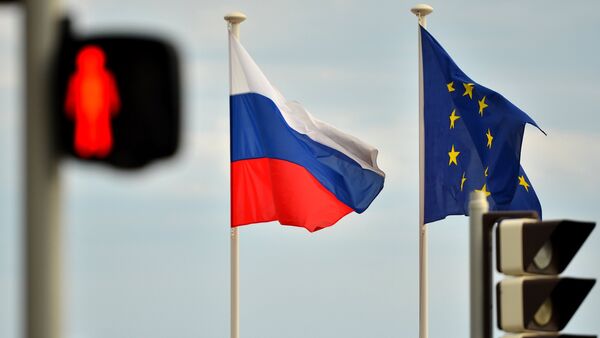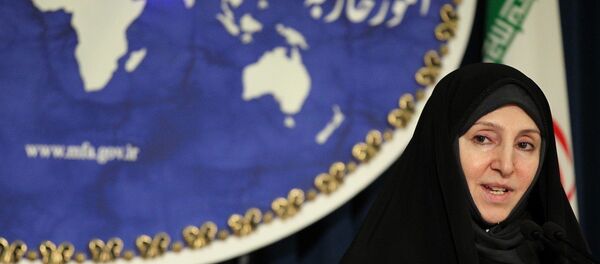"Pakistan believes that sanctions are counterproductive," Janjua said, commenting on Islamabad's position regarding the sanctions regime against Russia over the Ukrainian crisis. "They do not achieve their objectives," he stated.
The ambassador explained that Pakistan had also been subjected to all sorts of sanctions through its history.
"At one point we called ourselves the most sanctioned ally of the West," he said adding that those sanctions did not reach their goals, as Pakistan still "did what it had to do despite the sanctions regime."
Sanctions sour the atmosphere and force countries to justify positions that are not in their best interests, Janjua noted adding that "there are better ways of handling the issues rather than sanctions."
"Pakistan follows an independent foreign and economic policy; we do not ally with the any group of countries against someone," Janjua told Sputnik commenting on a statement made by the EU ambassador to Pakistan Lars-Gunnar Wigemark.
Wigemark, when addressing the National Assembly's Foreign Affairs Committee in Islamabad on how to strengthen Pakistan-EU relations, said that Pakistan should condemn Russia "if it wants to make a real gesture towards [the] EU."
The Ambassador of Pakistan stressed that "Islamabad's decisions are always independent; Pakistan would not let any country to dictate the rules." He concluded that Pakistan will scrupulously follow the rule to act with the country's best interests at heart.
Following Crimea's reunification with Russia, the United States and its allies have introduced several rounds of sanctions over Russia's alleged involvement in the Ukrainian crisis — claims repeatedly denied by Moscow. The restrictive measures target Russia's defense, banking and energy sectors.
Russia has repeatedly referred to the Western sanctions as illegal and counterproductive.




